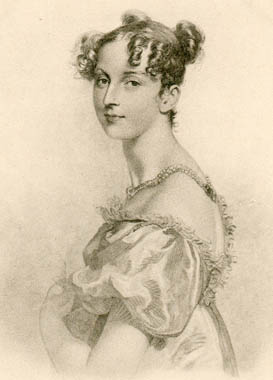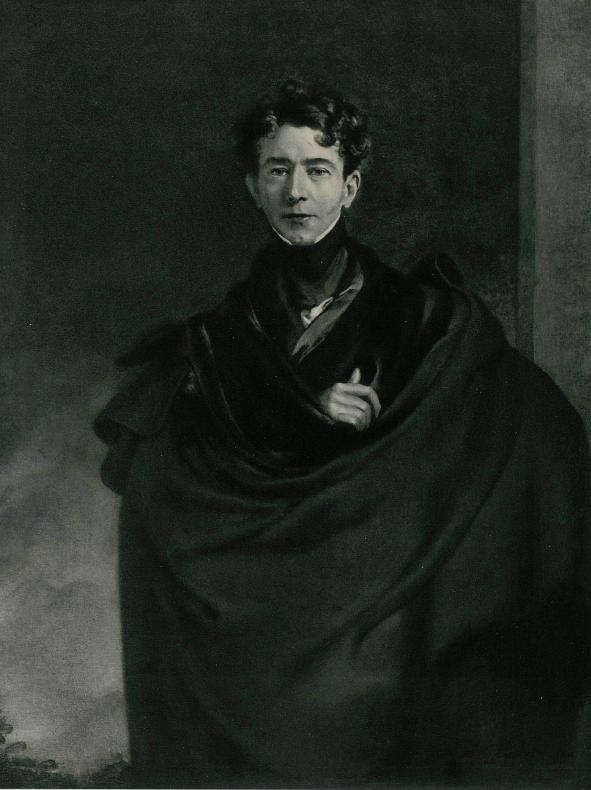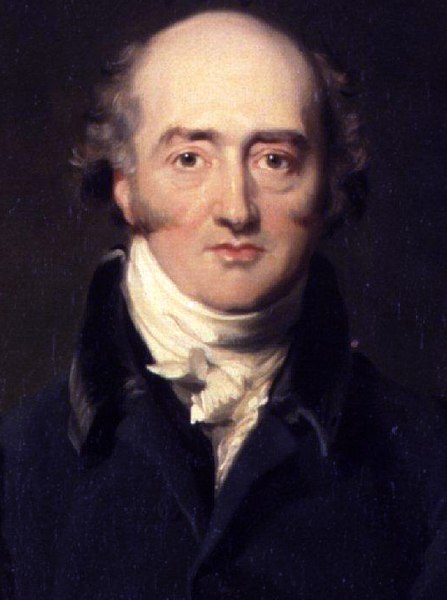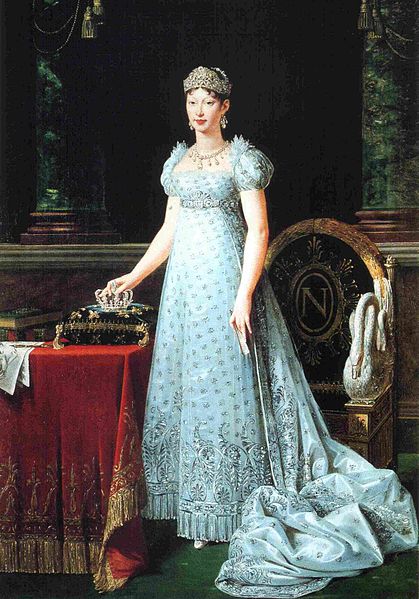 |
| Pavlovsk Palace |
Trip to Russia
Dorothea’s deferred trip to Russia finally got underway in
June 1825. She arrived in July and stayed at the Pavlovsk Palace where
the dowager Empress held her court. Dorothea found it difficult to re-adapt to
the more formal behaviour required in the Russian court. As Czar Alexander lived
as a recluse at Tsarkskoe Selo with his wife, court life centred round Maria
Feodorovna.
.jpg) |
| Czar Alexander I |
During her visit Dorothea had a 1½ hour meeting with
Alexander; she took advantage of the meeting to deliver a critique of
Metternich and Austrian policy. She then had a meeting with Count Nesselrode. That
both Alexander and Nesselrode knew of her affair with Metternich only made them
take her opinions more seriously. Following the meeting Alexander commented to
Dorothea’s brother;
‘Last
time I saw your sister she was an attractive girl; now she is a stateswoman.’[i]
A second interview with Alexander towards the end of
Dorothea’s stay saw Alexander ask her opinion of Canning, whom he described as
a Jacobin. On 19th August, immediately prior to her departure, Dorothea
saw Nesselrode again; he informed her that Alexander believed that following
Metternich’s advice over Greece benefitted only Austria. The Czar wanted to use
Dorothea to persuade the English to open overtures with Russia. Dorothea asked
for and received a note for Christopher informing him of this drastic change in
Russian policy.
Back Home
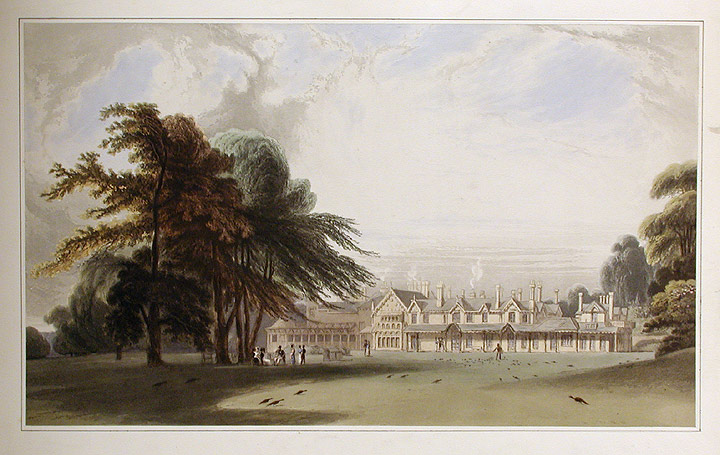 |
| Royal Lodge, Windsor |
Dorothea’s return journey to England took a month and she
arrived back in September. The speed of the journey so exhausted her she had to
rest for ten days in Brighton, seeing no-one but Canning and Wellington.
Dorothea wrote to Alexander about her problem child;
‘I
am delighted to hear that my mother-in-law is interesting herself in
Constantine’s future, and I shall be most anxious to hear what becomes of her
care.’[ii]
In October the Lievens stayed with the King in the Cottage at Windsor.
Encouraged by Dorothea, George invited Canning to dinner and Canning was able
to amuse the King. Dorothea viewed Canning as her protégé and advised him on
court etiquette and international affairs. Canning was surprised to be visited
by the Lievens on 24th October. They gave Canning details of the
disagreements between Russia and her allies over Greece.
 |
| Czar Nicholas I |
Then disaster struck; Czar Alexander died on 1st
December 1825 to be replaced by his brother Czar Nicholas,
the youngest of Dorothea’s mother-in-law’s charges. Dorothea was devastated,
well aware that the new Czar would not entrust her with the responsibilities
Alexander had;
‘I
cannot sleep I can only weep, I weep from the bottom of my heart, all is over.
He [Alexander] gave me a new interest in life. I had great political influence
over him ad I should soon have had more.’[iii]
Christopher was recalled to Russia in March. Dorothea was
concerned that Nicholas might want to keep Christopher in Russia.
‘He
likes my husband, and respects him, and he likes and respects scarcely anybody
else in the world….my husband will resist all proposals. He has not a spark of
ambition in his make-up.’[iv]
With Christopher absent in Russia, Dorothea played the part
of Russian ambassador from the new Russian embassy at Ashburnham House.
Canning sent Wellington to St Petersburg with detailed
instructions; he was tasked with dissuading the new Czar from going to war with
the Turks over Greece. Being unwell only added to Wellington's disinclination to
visit Russia. He went very unwillingly and arrived in March 1826.
Canning ordered Wellington to urge that the Lievens be kept
on in London. On 4th April 1826 Wellington signed the Protocol of St
Petersburg[v] before returning home. He
arrived back to find Dorothea and Christopher had been reporting unfavourably
upon his actions in St Petersburg.
Social Elevation
When Wellington’s sister-in-law[vi] returned from Vienna in
the spring of 1826 she brought home unwelcome news for Dorothea. Metternich had
taken to visiting one Mademoiselle Antoinette von Leykam, a 19 year old who was
to become his second wife the following year. Dorothea was cutting in her
correspondence with Metternich.
Bored with the grasping Lady Conyngham, it was now that the
king suggested that Dorothea became his mistress, having summonsed her down to
Brighton, claiming;
‘[He
had] been in love with me for thirteen years.....never dared tell me; he hoped
I should find it out for myself......[she] alone could guide him; our minds are
alike; our views agree; my tastes will be his.’[vii]
In Russia Dorothea’s family were the willing recipients of
the new Czar’s patronage. Alexander von Benckendorf became head of the Russian
secret police and was one of Nicholas’ key advisers and Christopher became a
Prince when his mother was awarded the rank of Princess for her services to the
royal family. Alexander von Lieven was hoping to be appointed to the United
States Mission that his father had been under consideration for.
Dorothea’s elevation brought a spat with Princess Esterhazy;
the two had never cared for one another. Now the waning of Dorothea’s
relationship with Metternich meant the wife of the Austrian ambassador could
vent her dislike, her public put-down of Dorothea at a party at Wellington’s
house was greeted with general approbation. Princess Esterhazy was good-natured
and well liked while the witty and sharp Dorothea was not popular.
Rising Star
Dorothea wrote her last letter to Metternich on 12th
December 1826. When she heard that he had married the beautiful Mademoiselle
Leykam, a bitter Dorothea commented unpleasantly that it was a shame that;
‘[The]
Chevalier of the Holy Alliance had ended by concluding a mésalliance.’[viii]
 |
| Mrs Arbuthnot |
Dorothea was at a crossroads and, in a complete volte-face,
she now decided to befriend the rising star. Her political courtship of Canning
caused amusement among those like Harriet Arbuthnot[ix]
who could not forget that Canning’s mother was an actress. Mrs Arbuthnot
attributed Dorothea’s political change of heart to the break-up of her
friendship with Metternich.
Dorothea was of course now following the political star of
one who wanted to undo much of what Metternich had wrought. Her conversion was
viewed with disapproval; Canning was viewed as a dangerous liberal who would
bring down revolution upon Europe. Her support of Canning also led to a break
with Wellington. But Dorothea supported Canning because his policies coincided
with Russian interests.
Christopher was busy getting Canning to support a policy
opposed by the majority of the British cabinet. Dorothea found support for
Canning’s idea of a solution to the Greek question in Lord Grey, who might be
persuaded to prop up a Canning government.
Prime Minister
 |
| Sir Robert Peel |
Liverpool suffered a stroke in February 1827 and George
appointed the detested Canning as Prime Minister. Refusing to serve under
Canning’s leadership, Wellington resigned as Master of
the Ordnance and Commander in Chief of the armed forces.
Sir Robert
Peel and other senior Tories also refused to work with the detested but
brilliant Canning who had to rely on the support of the Whigs to remain afloat.
Dorothea lent Canning her support and even discussed and approved of the
appointment of Lord Dudley
as Foreign Secretary.
Mrs Arbuthnot noted Dorothea’s activities in the enemy camp
with a growing dismay;
‘She
has gained great influence over Mr. Canning and
Lord Dudley and she manages
Lieven as she pleases……it is curious enough that the loves and intrigues of une femme galante should have such an
influence over the affairs of Europe.’[x]
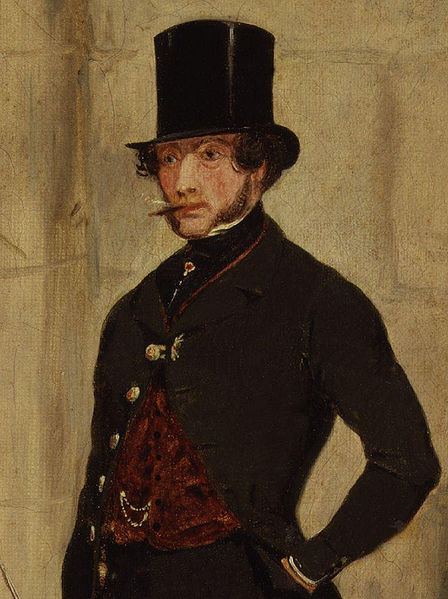 |
| Lord Dudley |
Mrs Arbuthnot was wrong; Dorothea was having problems with
Christopher; she told her brother that her husband ignored the fact that she
was suffering from palpitations of the heart. Dorothea wrote to Christopher
accusing him of no longer loving her. Christopher was not one for emotional
scenes and her letters probably caused him acute embarrassment. To add to
Dorothea’s troubles news about Constantine failed to arrive despite continued
requests in her letters to her brother.
Disaster
 |
| Naval base Portsmouth |
Canning’s own health was not good and he had to expend much
of his energies to keep his disparate cabinet working together. He died in the
July, three months into his new job[xi]; Dorothea was greatly
distressed by Canning’s death and it made her ill. She was unable to accompany
Christopher to meet the Russian fleet which called into Portsmouth en route to the Mediterranean. Never one
to under dramatize a situation Dorothea informed her brother;
‘My
husband has started for Portsmouth to see our fleet, and I, very ill, am left
behind. I was dying to see Russia again, but the wish could only be gratified
at the risk of killing myself.’[xii]
The Turks had been given one month to accept the mediation
of the great powers in its quarrel with Greece. Failure to do so would result
in the recognition of Greek independence.
 |
| Duke of Devonshire |
Dorothea took herself off to Chatsworth for the Doncaster races. The
party included the Cowpers and Mr and Mrs Agar
Ellis. The race meeting itself brought more friends; Lord Grey, Lord
Worcester and Lord
Londonderry. Christopher joined the group and immediately the pair were
quarrelling again, writing notes to one another on disputed trivialities. Dorothea
played the sympathy card once again;
‘Decide
whether you can sacrifice your puerile vanity for the reasons I have given you,
otherwise I must ask you to arrange that I can live apart from you…..I have
just had a haemorrhage…..I think that you want at all costs to humiliate me and
to tease me.’[xiii]
These dramatics were over the question as to whether
Christopher should wear a red ribbon the Duke of Devonshire had requested he
wear. Dorothea had assured him his host was making fun of her husband.
Christopher was prepared to humour the Duke’s ‘enfantillage’ and Dorothea was infuriated. The couple returned to
London in October but the infighting continued.
Bibliography
The Princess and the Politicians – John Charmley, Penguin
Books 2006
Wellington – Christopher Hibbert, Harper Collins 1997
Paris Between Empires – Philip Mansel, Phoenix Press
Paperback 2003
The Life and Times of George IV – Alan Palmer, Book Club
Associates 1972
Princess Lieven’s Letters – Lionel G Robinson (ed),
Longmans, Green & Co 1902
The Russian Empire – Hugh Seton-Watson, Oxford University
Press 1988
Metternich – Desmond Seward, Viking 1991
Arch Intriguer – Priscilla Zamoyska, Heinemann Ltd 1957
www.wikipedia.en
[i]
Arch Intriguer - Zamoyska
[ii]
Princess Lieven’s Letters - Robinson
[iii]
Arch Intriguer - Zamoyska
[iv]
Ibid
[v]
Allowing for British and Russian mediation with the Turks on the Greek
question.
[vii]
The Princess and the Politicians - Charmley
[viii]
Ibid
[ix]
A Tory party hostess
[x]
Arch Intriguer - Zamoyska
[xi]
He had never recovered from an illness picked up while attending the Duke
of York’s funeral in January
[xii]
Princess Lieven’s Letters - Robinson
[xiii]
Arch Intriguer - Zamoyska
